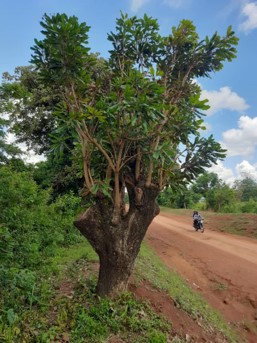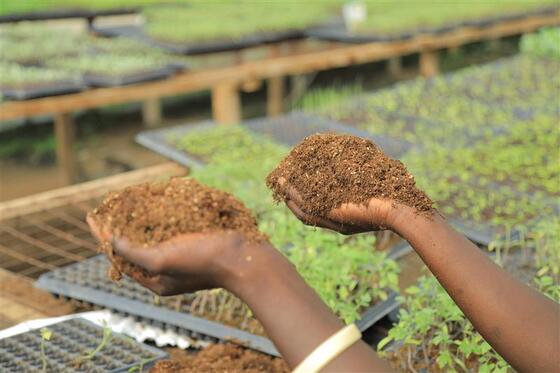The Northern Uganda – Transforming the Economy through Climate Smart Agri-Business Market Development (NU-TEC MD) programme is a five-year DFID funded programme implemented by Palladium that aims to increase the incomes and climate resilience of poor men and women in Northern Uganda by (a) stimulating sustainable, pro-poor growth in selected agricultural markets and (b) improving the position of poor men and women within these market systems by making the market systems more inclusive.
NU-TEC MD sees a move away from traditional subsistence aid, instead looking towards knowledge sharing and relationship building with the intention to identify, attract and support investments that drive growth for smallholders in Northern Uganda. There is a particular emphasis on catalysing change for women and vulnerable groups: youth, persons with disabilities (PWDs) and the very poor. As such, NU-TEC MD operates within the ‘making markets work for the poor’, or ‘M4P’ framework,1 supporting pioneering firms to navigate the constraints of operating in the agri-economy of Northern Uganda and co-develop and pilot inclusive business models that generate economic, social and environmental returns.
This report is a small but important component of NU-TEC MD’s overall programme. The purpose of this report is to provide detailed insight into how Persons with Disabilities (PWDs) in Northern Uganda are engaging as market actors within selected agricultural market systems.
This, in turn, will enable NU-TEC MD to ensure that ongoing research, interventions and market development approaches are targeted or tailored appropriately to ensure maximum impact for growth. This report builds on initial ideas put forward in a scoping report and four Market System Assessments that were completed by NU-TEC MD as part of an inception phase of the overall five-year project.
Therefore, this report aims to give an overview of PWDs as market actors within the business environment – looking at areas such as access to assets and financial services, whilst also considering social rules. It also focuses on some specific market systems identified previously which include sunflowers and soybeans, land preparation, aggregation and storage and seed markets.
This research is both timely and topical in the DFID and global drive for a world where ‘no-one is left behind’. Importantly, as the report demonstrates, it shows PWDs are important players that add value from an economic market based perspective.




